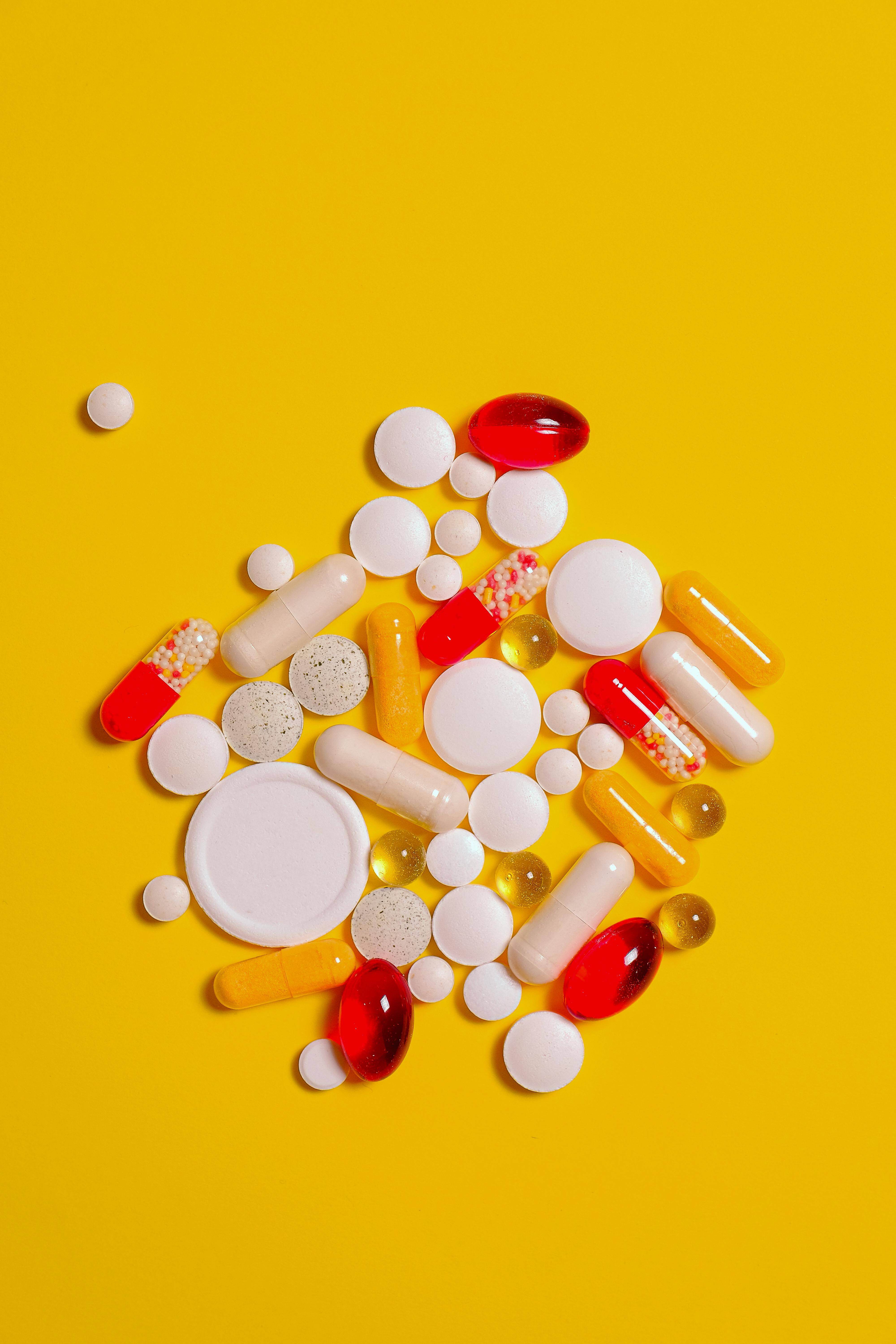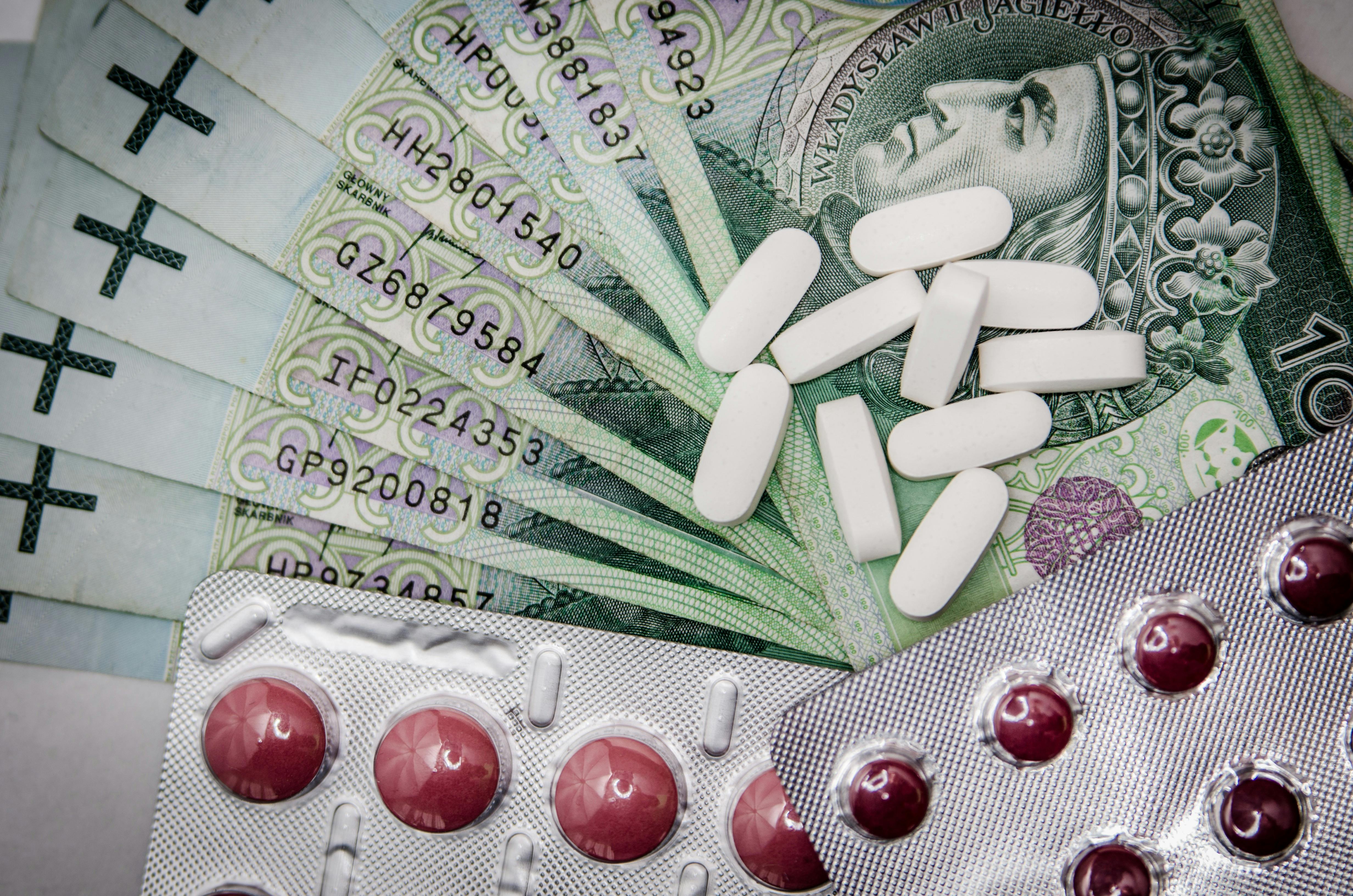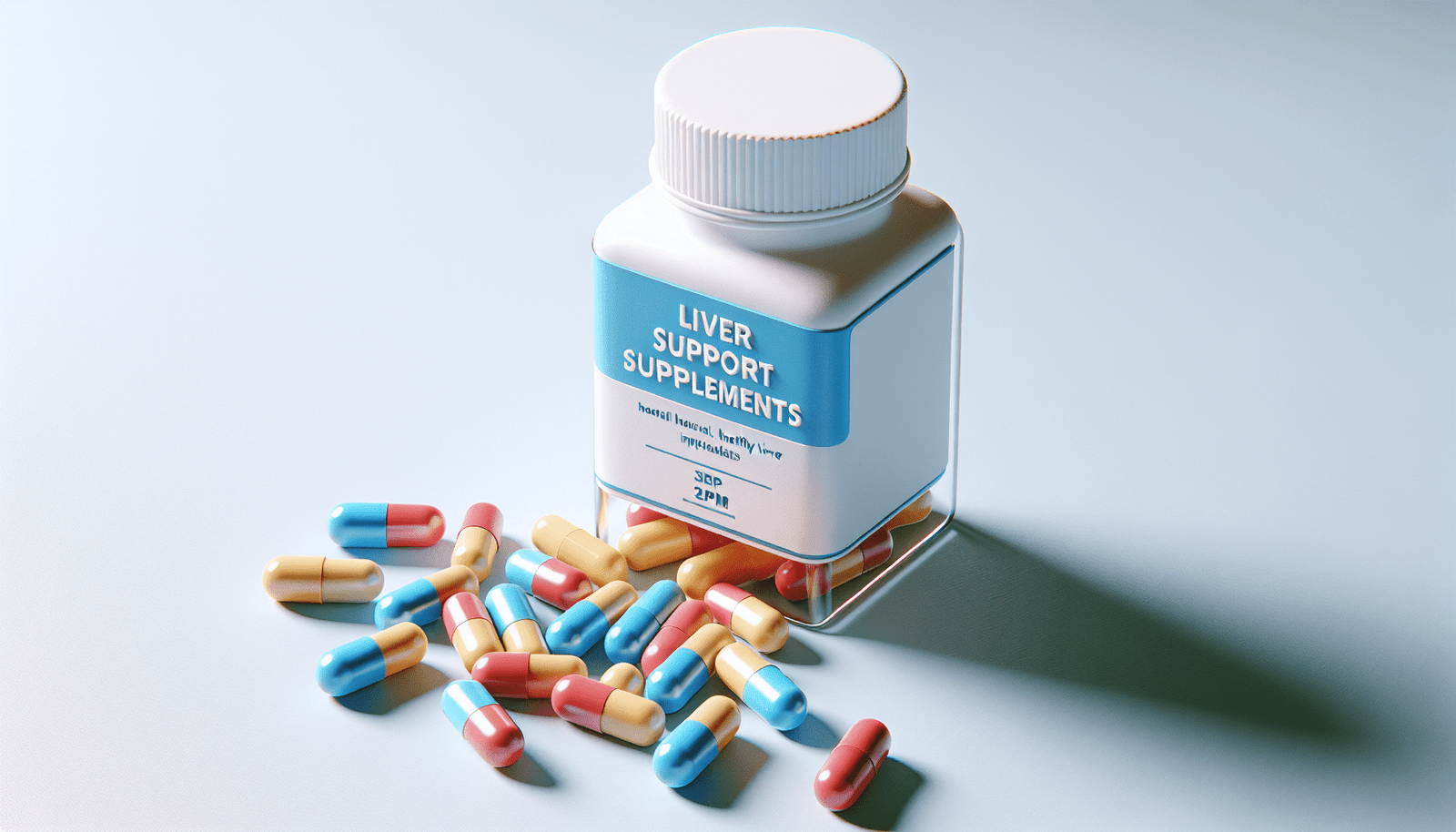You’re probably familiar with the important role that the liver plays in detoxifying the body. But did you know that there are supplements available that can actually support your liver’s detoxification pathways? In today’s article, we explore the potential benefits of these supplements and how they can help maintain a healthy liver. So if you’ve ever wondered if there’s a natural way to enhance your liver’s detox abilities, read on to discover more about this intriguing topic.

Understanding liver detoxification pathways
What are liver detoxification pathways?
Liver detoxification pathways are the processes by which the liver breaks down and eliminates toxins from the body. The liver plays a crucial role in detoxification, as it filters the blood coming from the digestive tract before it travels to the rest of the body. There are two main phases of liver detoxification: Phase I and Phase II.
Why are liver detoxification pathways important?
Liver detoxification pathways are vital for maintaining overall health and well-being. When toxins build up in the body, they can negatively impact various bodily functions and contribute to the development of chronic diseases. By supporting healthy liver detoxification pathways, you can aid in the removal of toxins and promote optimal liver function.
How do liver detoxification pathways work?
During Phase I detoxification, the liver uses enzymes called cytochrome P450s to convert toxic substances into less harmful compounds. This process involves oxidation, reduction, and hydrolysis reactions. However, some intermediate products formed during Phase I detoxification can be more toxic than the original toxins.
To neutralize these intermediate products, Phase II detoxification occurs. This phase involves conjugation, where the liver adds specific molecules to the intermediate products to make them water-soluble and easily excreted from the body. Conjugation reactions include methylation, sulfation, acetylation, and glucuronidation.
The importance of supporting healthy liver detoxification pathways
Supporting healthy liver detoxification pathways is crucial for maintaining optimal liver function and overall well-being. By aiding the liver’s ability to eliminate toxins efficiently, we can reduce the risk of developing various health issues and promote overall health. There are several lifestyle factors, including diet and nutrition, that can impact liver detoxification pathways. Additionally, supplementing with specific nutrients and botanicals can provide additional support to the liver.
Common causes of liver stress
Alcohol consumption
Excessive alcohol consumption can cause significant stress on the liver. When consumed in large quantities or over a prolonged period, alcohol can lead to inflammation, fat accumulation, and liver damage. This can disrupt the normal functioning of the liver, impairing its ability to detoxify harmful substances effectively.
Drug use and medications
Certain drugs and medications, particularly those taken in high doses or over an extended period, can place stress on the liver. Some medications are metabolized by the liver, and the detoxification processes can be overwhelmed when dealing with high levels of drugs. This can lead to liver toxicity and damage.
Poor diet and nutrition
A diet high in processed foods, unhealthy fats, and added sugars can contribute to liver stress. These foods are often low in nutrients and high in toxins, such as artificial additives and preservatives. This can increase the liver’s workload and hinder its ability to efficiently detoxify the body.
Environmental toxins
Exposure to environmental toxins, such as air pollution, industrial chemicals, and heavy metals, can place stress on the liver. These toxins are pervasive in our modern world, and the liver is responsible for filtering them out of the bloodstream. Continuous exposure can overwhelm the liver’s detoxification pathways and lead to liver damage.
Chronic conditions (e.g., hepatitis)
Chronic conditions, such as viral hepatitis, can cause long-term liver stress. Hepatitis viruses can lead to inflammation and damage in the liver, impairing its ability to detoxify harmful substances effectively. Other chronic conditions, like non-alcoholic fatty liver disease (NAFLD), can also contribute to liver stress and compromise detoxification pathways.

Role of supplements in supporting liver detoxification
Understanding the role of supplements
Supplements can play a crucial role in supporting liver detoxification pathways by providing the body with essential nutrients and antioxidants. These nutrients and antioxidants help to enhance the function of liver enzymes involved in detoxification and protect the liver from oxidative damage caused by toxins.
Research on supplements for liver detoxification
Numerous studies have investigated the effects of various supplements on liver health and detoxification pathways. These studies have shown promising results, suggesting that certain supplements can improve liver function, reduce inflammation, and support the body’s natural detoxification processes.
How supplements can aid in liver detoxification
Supplements can aid in liver detoxification by providing specific nutrients and antioxidants that support the liver’s enzymatic activities. For example, antioxidants like milk thistle and alpha-lipoic acid help to neutralize free radicals and reduce oxidative stress in the liver. Other nutrients and botanicals can enhance Phase I and Phase II detoxification pathways, improving the liver’s ability to break down toxins efficiently.
Types of supplements for liver health
There are several types of supplements available that can support liver health and detoxification pathways. These include herbs, such as milk thistle, turmeric, and dandelion root, as well as nutrients like N-acetyl cysteine (NAC), selenium, and B vitamins. Additionally, antioxidants like vitamin C and alpha-lipoic acid can also be beneficial for liver health.
Key supplements for supporting healthy liver detoxification
Milk thistle
Milk thistle is a widely studied herb known for its liver-protective properties. It contains a compound called silymarin, which has antioxidant and anti-inflammatory effects. Silymarin has been shown to support liver cell regeneration and enhance the liver’s detoxification processes.
N-acetyl cysteine (NAC)
N-acetyl cysteine (NAC) is a form of the amino acid cysteine that plays a critical role in glutathione synthesis. Glutathione is a potent antioxidant that supports liver function and aids in detoxification processes. NAC supplementation can boost glutathione levels and enhance the liver’s ability to neutralize toxins.
Turmeric
Turmeric contains a compound called curcumin, which has potent anti-inflammatory properties. Inflammation can impair liver function and compromise detoxification pathways. Turmeric supplementation can help reduce liver inflammation, enhancing its ability to detoxify harmful substances.
Dandelion root
Dandelion root has traditionally been used to support liver health and promote bile production. Bile plays a crucial role in the excretion of toxins from the liver. Dandelion root supplementation can support bile production, aiding in the elimination of toxins from the body.
Artichoke leaf extract
Artichoke leaf extract is rich in antioxidants and contains compounds that support liver health. It has been shown to aid in liver regeneration and protect against oxidative damage. Artichoke leaf extract supplementation can provide additional support to the liver’s detoxification processes.
Alpha-lipoic acid (ALA)
Alpha-lipoic acid (ALA) is a powerful antioxidant that can protect the liver from oxidative damage caused by toxins. ALA has been shown to enhance detoxification pathways and improve liver function. Its antioxidant properties help neutralize free radicals and reduce inflammation in the liver.
Selenium
Selenium is an essential mineral that supports liver detoxification enzymes and helps protect against oxidative stress. It is involved in the production of glutathione, a key antioxidant for liver health. Selenium supplementation can ensure adequate levels of this essential nutrient for optimal liver detoxification.
Vitamin C
Vitamin C is a potent antioxidant that plays a crucial role in liver health. It helps neutralize free radicals and protect liver cells from oxidative damage. Additionally, vitamin C supports the immune system, which is essential for maintaining overall liver health and function.
B vitamins
B vitamins, including B6, B12, and folate, are vital for liver detoxification pathways. They are involved in various enzymatic reactions that facilitate Phase I and Phase II detoxification processes. B vitamin supplementation can ensure an adequate supply of these nutrients, supporting optimal liver function.
Probiotics
Probiotics are beneficial bacteria that promote gut health and support detoxification processes. A healthy gut microbiome can enhance the liver’s ability to eliminate toxins efficiently. Probiotic supplementation can help maintain a balanced gut microbiome and support overall liver health.

Benefits of each supplement
Milk thistle: antioxidant and anti-inflammatory properties
Milk thistle’s antioxidant and anti-inflammatory properties protect liver cells from oxidative damage and reduce inflammation in the liver. This can aid in liver cell regeneration and support optimal detoxification.
N-acetyl cysteine (NAC): boosts glutathione levels
NAC supplementation boosts glutathione levels, enhancing the liver’s ability to neutralize toxins and reduce oxidative stress. This can support overall liver health and promote efficient detoxification.
Turmeric: reduces liver inflammation
Curcumin, the active compound in turmeric, has powerful anti-inflammatory effects. Turmeric supplementation can help reduce liver inflammation, enhancing its ability to detoxify harmful substances.
Dandelion root: supports bile production
Dandelion root supports bile production, aiding in the elimination of toxins from the liver. This can enhance the liver’s detoxification processes and promote optimal liver health.
Artichoke leaf extract: aids in liver regeneration
Artichoke leaf extract supports liver cell regeneration and protects against oxidative damage. It provides additional support to the liver’s detoxification processes and promotes overall liver health.
Alpha-lipoic acid (ALA): protects against oxidative damage
ALA’s antioxidant properties protect liver cells from oxidative damage caused by toxins. It enhances detoxification pathways and reduces inflammation in the liver, supporting optimal liver function.
Selenium: essential for liver detoxification enzymes
Selenium is essential for the function of liver detoxification enzymes and helps protect the liver against oxidative stress. It ensures optimal liver detoxification and supports overall liver health.
Vitamin C: antioxidant and immune support
Vitamin C’s antioxidant properties protect liver cells from oxidative damage and support overall liver health. It also supports the immune system, which is essential for maintaining optimal liver function.
B vitamins: key role in liver detoxification
B vitamins play a key role in liver detoxification pathways, facilitating enzymatic reactions involved in Phase I and Phase II detoxification. Adequate B vitamin levels support optimal liver function and detoxification.
Probiotics: promotes gut health and detoxification
Probiotic supplementation promotes a healthy gut microbiome, which in turn enhances the liver’s ability to eliminate toxins efficiently. It supports overall liver health and promotes optimal detoxification.
Recommended dosage and usage
Consulting with a healthcare professional
Before starting any supplementation regimen, it is essential to consult with a qualified healthcare professional. They can assess your individual needs and health conditions and provide personalized advice on the appropriate dosage and usage for each supplement.
Understanding individual needs and health conditions
Supplement dosage and usage can vary depending on individual needs and health conditions. Factors such as age, sex, weight, and overall health should be taken into consideration when determining the optimal dosage.
Proper dosage guidelines for each supplement
Dosage guidelines for each supplement can vary, and it is important to follow the recommended dosage instructions provided by the manufacturer or healthcare professional. Starting with the lowest effective dose and gradually increasing if needed is often recommended.
Possible interactions with medications
Some supplements may interact with certain medications, potentially affecting their effectiveness or causing adverse effects. It is crucial to inform your healthcare professional about all medications you are taking to ensure there are no potential interactions.
Tips for optimizing liver health
Maintaining a balanced and nutritious diet
Eating a balanced and nutritious diet is crucial for optimal liver health. Focus on consuming whole foods, including fruits, vegetables, lean proteins, and healthy fats. Avoid processed foods, excessive sugar, and unhealthy fats, as they can contribute to liver stress.
Reducing alcohol consumption
Limiting alcohol consumption can significantly reduce liver stress. Stick to moderate or minimal alcohol intake, and consider abstaining from alcohol altogether if you have liver health concerns or a history of alcohol-related liver damage.
Avoiding exposure to toxins
Take steps to minimize your exposure to environmental toxins, such as air pollution, industrial chemicals, and heavy metals. This may involve using natural cleaning products, filtering your drinking water, and avoiding unnecessary exposure to toxic substances.
Engaging in regular exercise
Regular exercise can support overall liver health by promoting blood circulation and reducing fatty liver deposits. Aim for a combination of aerobic exercise and strength training to optimize liver function and detoxification.
Managing stress levels
Chronic stress can impact liver function and hinder detoxification processes. Engage in stress-reducing activities such as meditation, yoga, deep breathing exercises, and hobbies to manage stress levels and support liver health.
Getting sufficient sleep
Adequate sleep is essential for liver health and overall well-being. Aim for seven to eight hours of quality sleep each night, as this allows the liver to regenerate and perform its detoxification functions optimally.
Precautions and potential side effects
Possible interactions with medications
Certain supplements can interact with medications, potentially affecting their effectiveness or causing adverse effects. It is crucial to discuss your supplement regimen with a healthcare professional, especially if you are taking any medications.
Allergic reactions or sensitivities
In some cases, individuals may be allergic to certain supplements or have sensitivities. It is important to carefully read the product labels and discontinue use if you experience any allergic reactions or adverse side effects.
Digestive upset or mild gastrointestinal issues
Some supplements can cause mild digestive upset or gastrointestinal issues in some individuals. This may include symptoms such as nausea, diarrhea, or stomach discomfort. If these side effects persist or worsen, it is recommended to discontinue use and consult a healthcare professional.
Appropriate use during pregnancy and breastfeeding
Pregnant or breastfeeding individuals should exercise caution when considering supplement use. While some supplements can be safe during pregnancy and breastfeeding, it is essential to consult with a healthcare professional to ensure they are appropriate and safe for you and your baby.
Potential risks for certain health conditions
Individuals with certain health conditions, such as liver disease or kidney disease, should exercise caution when considering supplement use. Some supplements may not be suitable or may require additional monitoring and consultation with a healthcare professional.
Conclusion
Supplements can be a valuable addition to a comprehensive approach to supporting healthy liver detoxification pathways. By providing essential nutrients, antioxidants, and botanicals, supplements can enhance liver function, reduce inflammation, and support the body’s natural detoxification processes. However, it is crucial to consult with a healthcare professional before starting any supplementation regimen to ensure appropriate dosage, usage, and safety. Furthermore, maintaining a balanced diet, reducing alcohol consumption, avoiding exposure to toxins, engaging in regular exercise, managing stress levels, and getting sufficient sleep are all crucial factors in optimizing liver health. Further research and studies are needed to better understand the specific effects and benefits of supplements on liver detoxification, and consultation with healthcare professionals can provide personalized advice based on individual needs and health conditions.
References
-
Liver Detox Pathways and Support: The Role of Nutrients and Botanicals. Jones E, Hughes R. Int J Mol Sci. 2017;18(8):1652. doi:10.3390/ijms18081652
-
Liver health and detoxification supplements. Mayo Clinic. https://www.mayoclinic.org/diseases-conditions/liver-problems/expert-answers/liver-cleanse/faq-20058161. Published December 4, 2021. Accessed February 20, 2022.
-
The effect of dietary and pharmacological proteasome inhibition on hepatic lipid metabolism and its relationship to liver injury. Lodder J, Denaes T, Chobert MN, et al. Liver Int. 2016;36(6):883-895. doi:10.1111/liv.13061
